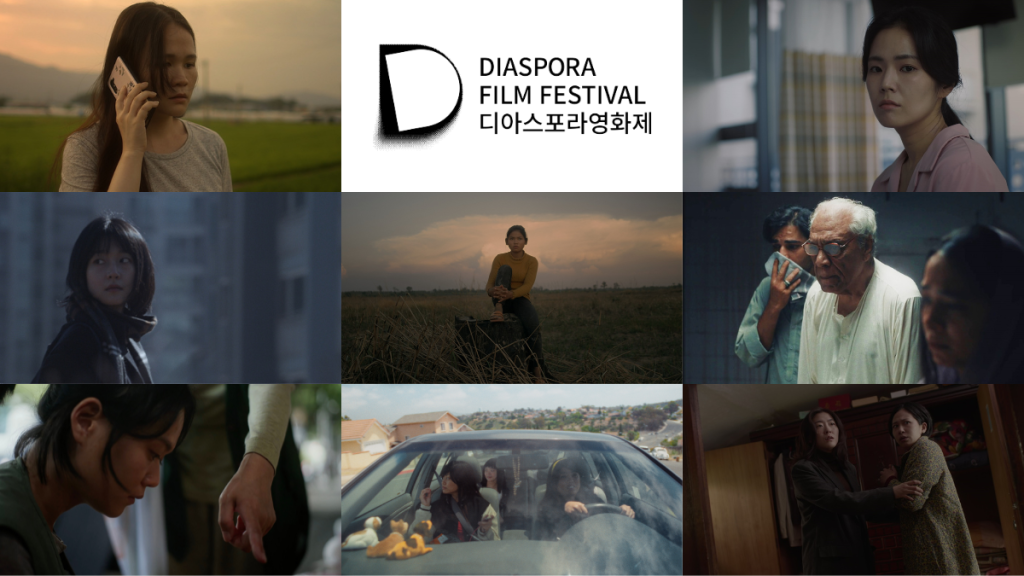
These are twelve short films you shouldn’t miss at the Diaspora Film Festival which will take place from May 19 – 23, 2023 at the Incheon Art Platform, Korea.
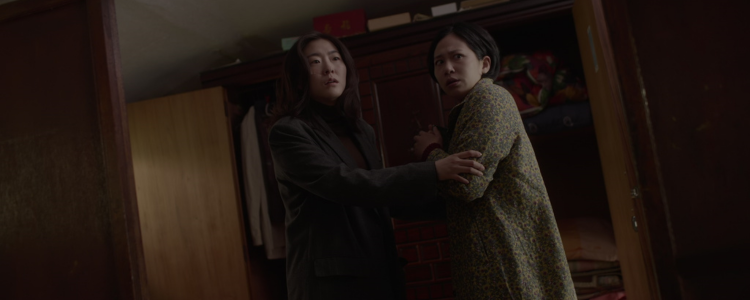
As if avoiding the ringing bell from the beginning, Younghwoe arrives at her uncle’s house. Although she meets her aunt, Mai, for the first time, Younghwoe does not introduce herself and behave rudely towards Mai because she is a married migrant woman with a different skin color. “You’re never setting foot outside this place. You’re not going anywhere!” Amidst the violent scene, where Younghwoe’s uncle shouts and uses violence, a phone rings faintly and a torn passport is scattered. Mai applied ointment and bandage to Younghwoe’s wound caused by her husband, and says, “When I’m hurt, I see other people’s pain too. Next time, you win.” This line seems to indicate that the film is set in. Mai brings the stamp Younghwoe needs, after Younghwoe throws away her wedding ring in order not to go back. It’s only then that Mai reveals her name. After washing their hands thoroughly, the two women resume their journey together and ask each other, “Where do you want to go now?” to which they respond. Right beyond this place. (JUNG Jieun)
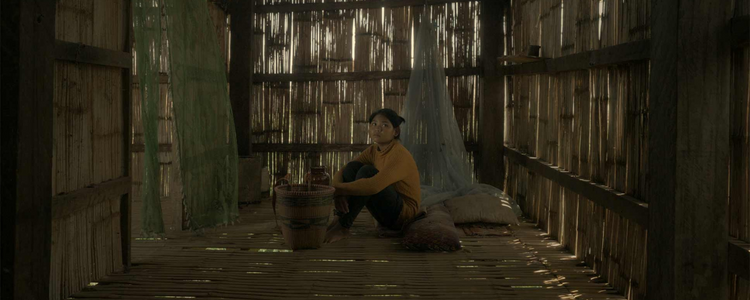
When talking about a person’s point of view, the position and direction of, and distance to the object from the person are points to be considered. Additional points to pay attention to are where the person is located, in which direction the person looks, and how far away the person’s gaze is. The main characters in the film are a few Bunong people (one of Cambodia’s minorities), and due to the dam construction were forced to leave their hometown and move to the capital Phnom Penh. Their eyes are not looking at the same side. Excited with the idea of working in the construction industry reviving in the city, the brother already texts acquaintances living in the capital while his sister visits the flooded old village alone before leaving, worrying that her parents’ souls could not follow them. The brother’s position is realistic and full of optimism for the future, but the sister’s point of view is stuck in the past, dreams, or ghosts. Through these siblings with different perspectives on migration that cause changes in the space and way of life, the director asks questions about the location and direction of migrants and the distance their eyes reach. (IM Sumi)
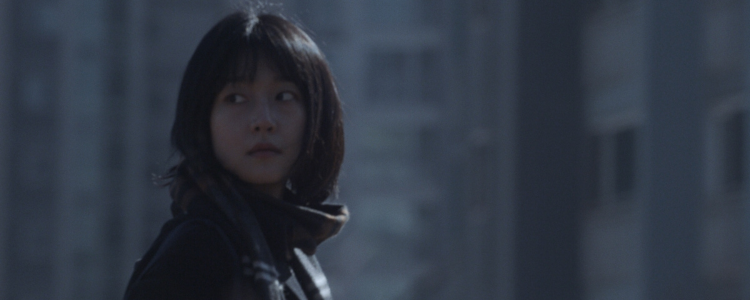
The film begins with Sujin telling her friend that she is given the opportunity to travel and work in Canada after she loses her job. For a while, the tragedy of losing her job seems to turn into a lifetime opportunity. As fate would have it, a series of misfortunes follow and her situation is once again reversed: her father, a victim of industrial disaster who has been hospitalized for the past 10 years, returns home when the hospital bill can no longer be covered. Society forces her to sacrifice herself for taking care of the family. Is it the issue of patriarchy, class struggle, or of the social welfare system that we first need to take a look at? In any case, the younger generation considers the older one to be a burden in the process of ‘zombification.’ As for the older generation, they leave home onto the streets and walk aimlessly, like zombies, in order not to be a burden to their children. In a situation where the perpetrator-victim boundary is blurred, Sujin is torn apart and wonders if there is any place for her to be at ease. A tunnel appears both at the beginning and end of the film. For whatever reason, she has to go through the tunnel in one way or another. (IM Sumi)
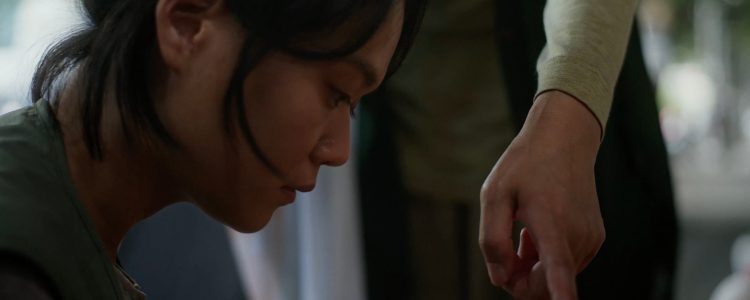
When watching Indigestion, the audience may initially feel frustration. It seems very important for the audience to follow this frustration throughout the film, because the film portrays Aya’s pain as a deeper issue related to human rights and social issues rather than just a simple pain. In particular, the moment when such a gaze is revealed is when Aya’s frustration is resolved. The crucial moment when this theme is revealed is when Aya’s frustration is resolved. Aya honestly shared her story with a Korean teacher whom she met by chance, and the problem was solved as soon as her voice was respected. Therefore, Indigestion aims to promote the value of everyone’s voice being respected as members of our society. (MIN Jeeyeon)
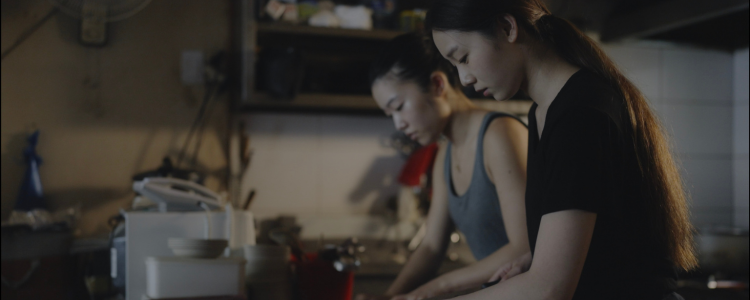
Amy, who was adopted to an American family as a child, visits Seoul to meet her biological mother. Instead, she meets her stepsister who has been raised with care and love. Their mother is remembered quite differently by the two daughters. They share their respective memories of her and spend some time together, but the memories are too different to be integrated nor unite the two sisters as one. When the audience encounters a narrative like this, they naturally expect the conflicts to be resolved, and the boundaries to collapse. Director Jéro Yun, however, presents the hard truth that such an easy reconciliation never happens in reality. Instead, he turns the attention of those who may be disappointed with the different ending solely to the characters who live through the wounds. The life the director wants to screen is not a fictional one that is full of unfounded hopes, but the struggle of those who live through whatever pain there may be. Jjigae is a short film by the director who wants to show how they actually live. (LEE Dong-yun)
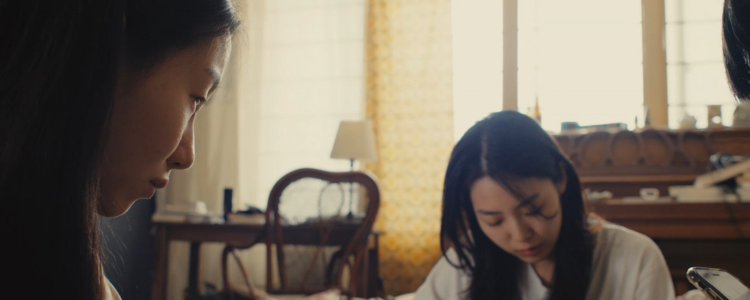
A Korean-Uzbekistan girl, commonly referred to as Koryo Saram, has two different names, Jiwon and Yulia. The girl has to choose one name for convenience, and her friend Hani recommends the former, while another friend Sunwoo, goes for Yulia. The choice is, however, not just for convenience ― Hani’s aim is to hide her friend’s ‘heterogeneity’, whereas Sunwoo intends to highlight it on the contrary. The two completely different choices nonetheless come from the same issue of discrimination, yet there is a difference in that Sunwoo’s choice counts as discrimination in itself, while that of Hani is nothing but the goodwill for her friend. The world surrounding the two does not seem to hesitate to exercise violence towards being different. Jiwon and Yulia are just two different names of the same weight, as in Jiwon/Yulia written on the name tag of a textbook, or ‘Jiwon and Yulia’, the title of the movie. The world separates the names and treats them differently, but the girl ‘Jiwon and Yulia’ does not belong to one side. She is both Jiwon and Yulia, and freely goes in and out of the boundary of Koryo Saram along with her friend Hani. (OU Yuri)
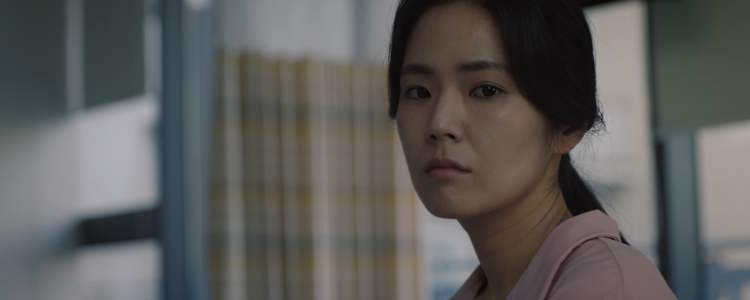
Siyeon is about to leave to study abroad in New Zealand. However, her current circumstances make her hesitate to book a flight. Her grandfather Yeong-beom, who raised her during childhood, has been seriously ill for a long time, caring for him has fallen on Siyeon’s mother Misook, as neither his son (who is frequently away on business trips) nor his daughter (who is committed to her job) have been able to help. After the doctor informs that Yeong-beom is not expected to survive for much longer, Misook asks Siyeon to delay her departure. Siyeon feels both frustrated and sorry for her mom. Siyeon quietly decides between her mother, who calmly says, “This is just the way things are with me,” and her aunt, who encourages her to pursue what she wants, even if it may feel uncomfortable, and her decision also affects her mother. Despite the potential for animosity, the three female characters quietly and calmly ‘move forward’ to deal with the situation. (HAHM Yeon-Sun)
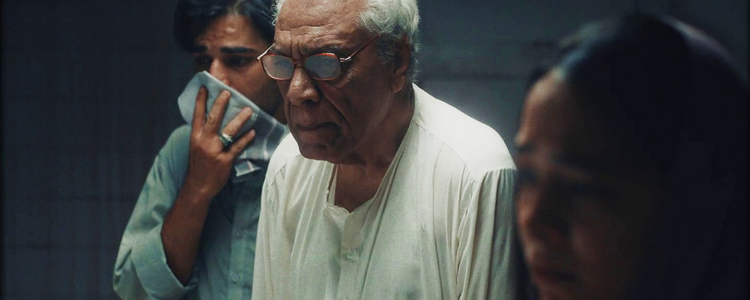
India is a multilingual country and one’s mother tongue has something to do with his or her birth place. Those who immigrated to Pakistan after the partition of India in 1947, fell victim to merciless violence and discrimination by the original settlers, Sindhi, and the Urdu language used by the immigrants has served as an indicator to distinguish them from the rest. As in a pun to ‘mother tongue’, the film Murder Tongue deals with the situation where one’s identity is formulated by language and the way migrants are denied human rights. Rashid’s family waits for him late at night. The news of Rashid’s accident is heard and the family hurries to the hospital, but the road and the hospital are filled with discrimination and absurdity. The film not only redefines a language that discriminates against the region of birth, but expands the boundary of language to include the sounds of babies and dogs as well as sign language. The film throws questions to the audience about the verbal and physical violence and the control unleashed by mainstream society. Where do you think the boundary of language is? People in the mainstream may want to control more than their language. (IM Sumi)
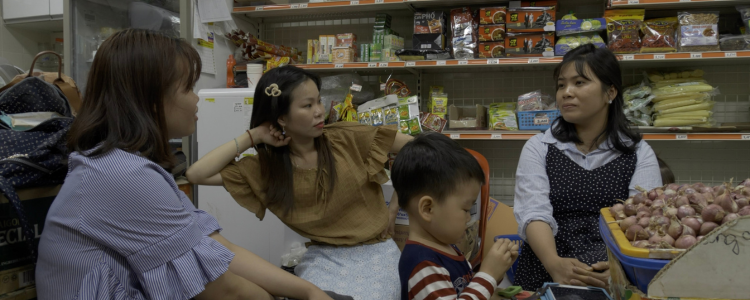
Thuy, a Vietnamese woman, runs an Asian grocery store with her Korean husband. The camera observes her daily life that takes place in the store in a tranquil manner. Beyond its original use, the store becomes a playground for their two kids, a guest room for Korean and Vietnamese couples to chat and share information, and a space for Korean and Vietnamese cultures to exchange, collide, and reconcile. Vietnamese wives huddle together and lament how far apart their fantasy about Korean men portrayed in Korean dramas is from reality. Thuy also complains to her husband about the prejudice among Koreans against Vietnamese women who marry Korean men, or about how difficult it is to educate children from multicultural families. Her husband never picks fights with his wife, and embraces whatever she says. This way, he tries to close the cultural gap. As days go by like this, the store grows into an alternative model community to accept differences. (KIM Kyung-tae)
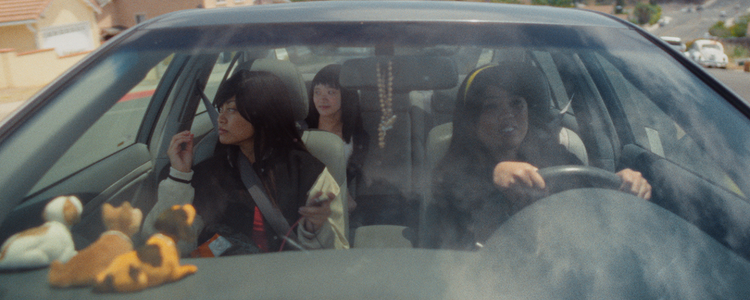
Into the dim light of dawn, there comes a snoring sound over a flip phone connected to a charger next to a bed. Here is a teenage girl, Ly, who is talking in vain to the unanswered receiver. Though she stays up all night, it is time to start the day for the Thanksgiving party at the house of her aunt Pinkie. The party goes boisterous with chatters in English and Tagalog, and Ly and her cousins commit some deviant behaviors. Ly cannot get her mind off of someone she has a crush on, but her clueless aunt bombards her with questions about her boyfriend. Intoxicated with sleepiness and drugs, Ly is swept away in the lively atmosphere at first, but her turbulent mind eventually comes to peace. The film vividly portrays the holiday scene of a Filipino immigrant family living in San Diego in 2006. Ly’s dream and reality intersect in a fantastical manner at the last scene, which is clearly a must see. (KANG Sojung)

The director, who graduated from film schools in Beijing and New York, returns to his hometown of Wenzhou. And he talks about the secrets that have been hidden for 10 years. A recorded image of daily life with an 8mm film camera is covered by a sound of the conversation with his mother. Even though visual images are very warm and peaceful, the conversation between the mother and the son sounds fierce and dull. In Beijing, New York, and even Wenzhou where his family is based, the director does not feel a sense of belonging. His friends are also wandering around in LA., Belgium and China without having a future. The ‘normal’ life that mother wants is not easy for the director and his friends. Why do they have no choice but to wander? What causes them to wander? Like the director, an Asian gay, who cannot marry a woman and have children is compelled to live as a stranger anywhere, it seems that a home does not exist for the younger generation in China now. (LEE Dong-yun)
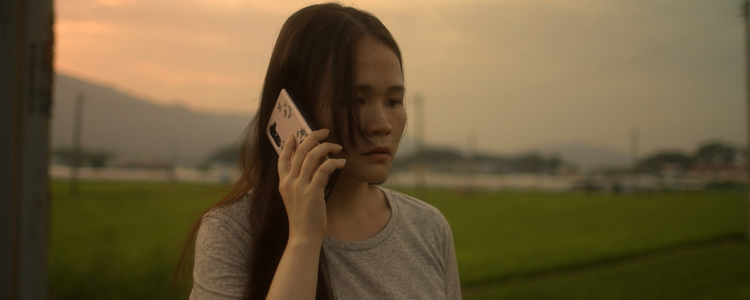
Xuyên, a married migrant woman, gets pregnant. Xuyên’s husband, who runs a farm, takes great care of her, even buying herbal medicine. Meanwhile, Jiang, a migrant worker who belongs to his farm, is deteriorating her health without proper care. Even though Xuyên lives in a stable and secure environment, she cannot help Jiang despite her request. Still, it is not easy to turn it down. The positions of married migrant women and migrant worker women can never be the same. On the one hand, someone can enter within the family boundaries through pregnancy, but on the other hand, someone is pushed out of the law’s boundary and deprived of all their status as a citizen. Crossing their boundaries is determined by the male-dominated patriarchal order. In such a society that only embraces those with reproductive capacity and takes the noble labor of one being as easily replaceable at any time, it is almost impossible for migrant women to protect themselves and others. Xuyên’s frustration proves this. (LEE Dong-yun)
For more information, please visit: https://www.diaff.org/eng/
Categories: News


